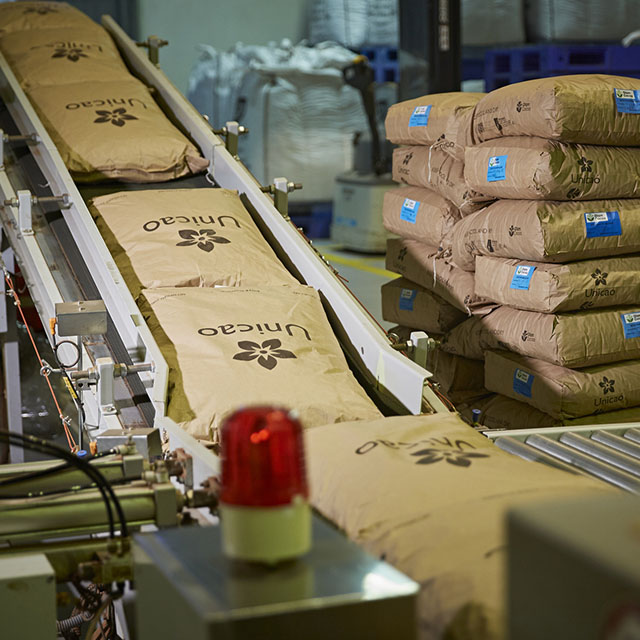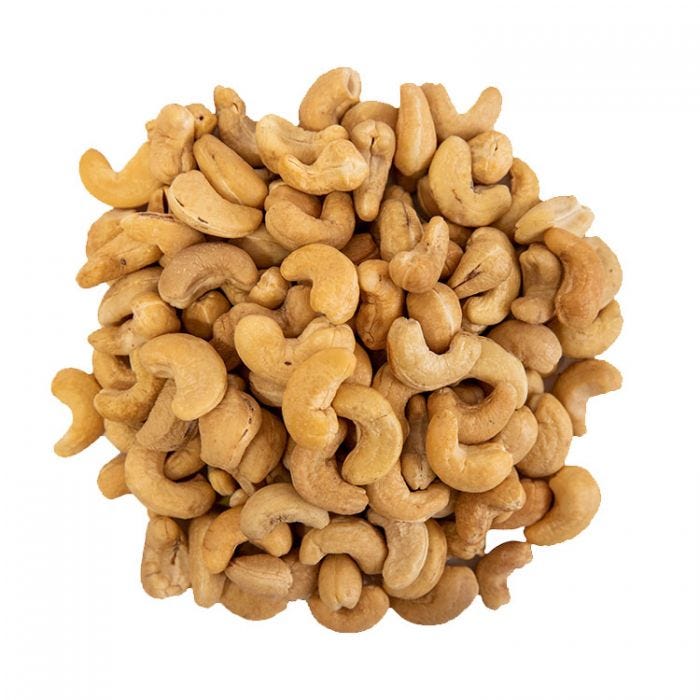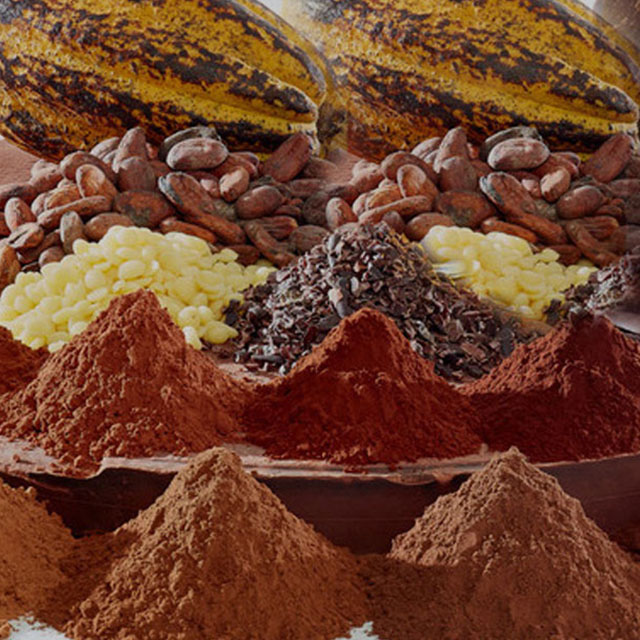ofi’s Cashew business is one of the first businesses for Olam in Ghana and presently we are a leading exporter of raw cashew nuts from Ghana. We are happy that over the years we have been part of the success story of Ghana’s cashew industry growth and contributed to it responsibly as a market leader.
Over the years, we have invested in capacity building for Cashew farming communities to help them overcome challenges such as low yield, poor quality and access to market. We offer year-round support to our farmers and have built strong relationships. We collect produce from farmers and aggregate inventory at ofi - warehouses, which also receive goods from our buying agents. Each location is equipped with drying and packing facilities allowing us to maintain the quality of the product and prepare it quickly for export to customers outside of Ghana.
Beyond the harvest season, we train farmers in Good Agricultural Practice to help them farm sustainably, increase their economic prosperity and create healthy ecosystems. We identify training needs at a community level and deliver tailored programmes.
It is refreshing to know that apart from supporting the growth of the Ghana cashew crop through the annual distribution of free cashew grafts to the farmers with whom we are directly connected to, we also promote alternative livelihood income support programs in cashew orchards. Our flagship program in bee keeping has seen over 400 women trained so far and set up in honey production: an additional household income from cashew orchards tailored towards women.
We also provide knowledge support and related training programs to adhere to the stipulated framework for Organic Cashew.
Overall, Cashew team has believed in working with the farming community beyond the routine transactional relation and extend into activities which could lead to the welfare of the cashew farmers.
From sourcing cocoa beans at the farmgate and establishing a Licensed Buying Company in 1999, to working with farming communities across the country and operating a state-of-the-art factory, we provide Ghanaian cocoa products to customers worldwide.
Traceability and sustainability are at the core of our operations. We source beans from smallholder farmers across Ghana and provide year-round support to help them achieve the best income for their crop. The cocoa business has maintained leadership position as the number I license Buying Company (LBC) in the country with presence across the entire cocoa landscape.
Our support ranges from micro financing, to training on Good Agricultural Practices and Climate-smart agriculture, to supplying hybrid cocoa and shade tree seedlings.
Olam is a founding member of the Cocoa and Forests Initiative (CFI). We are currently working in several landscapes in Ghana partnering with Government, NGOs, and other state Institutions to develop cocoa landscapes by supporting farmers improve productivity and livelihoods using LMB approach.
Read ofi news
By Andrew Brooks, Head of Cocoa Sustainability, olam food ingredients (ofi)
This week, the world’s attention turns to a heavy burden that can damage a child’s Health and Education: child labour. In ofi's cocoa business, we are focused on solving this problem every day.
Most child labour in cocoa relates to children carrying out hazardous tasks on the family farm, distinct from the much rarer issue of forced labour, and has no one cause. Labour laws can be misunderstood, and schools might be located far away. Even if there is a school nearby, children may not have the documents they need to enrol. When combined with rural poverty, many parents think their child’s time is best spent helping on the farm. And now, these cocoa-growing communities are also battling a global health pandemic.
We’re working to tackle each of these challenges in turn. Under our Cocoa Compass sustainability ambition, we aim to completely eradicate child labour from our direct supply chain by 2030 and ensure farmers’ children can access the education they are entitled to. In 2020, we reached the critical milestone of rolling out child labour monitoring across 183,000 households in nine countries.
There is still a lot to do, and collaboration with our customers, national governments, and civil society is essential. For example, we recently asked the Fair Labor Association (FLA) to assess the extent to which cocoa farmers and their families have benefited from our sustainability programmes in Côte d’Ivoire, their perception and satisfaction with these interventions, and help to refine our approach further.
Using a due diligence methodology called Social Impact Assessment, the FLA collected extensive data and interviewed over 450 people from ten cocoa communities, including women and children. It found that of all our efforts to tackle child labour, the setting up of child labour monitoring and remediation and enabling access to education are the most advanced and have the most significant impact.
It also revealed that over two-thirds of those interviewed think child labour is on the decline in their community, and 80% believe that the interventions by ofi and our partners are contributing to protecting children.
There are areas for improvement. The FLA suggested we provide additional support to help farmers access affordable labour. And ensure greater follow-up with Village Savings and Loans Associations to maximise their ability to promote child protection.
We know that combining our efforts through multi-stakeholder partnerships, championed by local and regional governments, and supported by international finance institutions, is the best way to create the kind of long-term systemic change needed to reach universal school attendance
and graduation for children in cocoa communities.
This World Day Against Child Labour reminds us that if we want to put children first in cocoa, we must be open to testing new approaches and adapting our efforts based on what works best. The future of a cocoa generation is at stake if we don’t.











